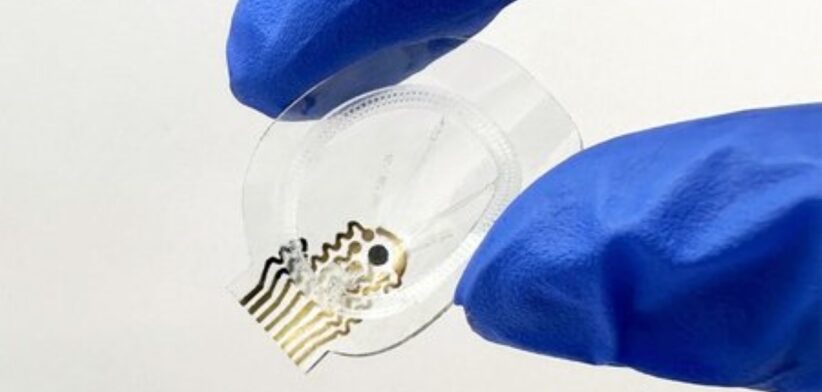A smart bandage, which monitors the healing of a wound, has been successfully trialled on people.
Caltech professor Wei Geo said the goal was to create a “lab on skin” that would not only help patients and caregivers monitor the status of chronic wounds, but also deliver treatment and speed up the healing process.
In 2023, Professor Geo said his team showed a smart bandage they developed could provide real-time data about chronic wounds in animal models, while also accelerating the healing process through the timely application of medication or electrical fields to stimulate tissue growth.
He said they had now demonstrated an improved version of the bandage that was able to continually sample fluid, which the body sends to wound sites as part of the inflammatory response, in 20 human patients with chronic wounds.
“These wounds were not able to heal either because of diabetes or poor blood circulation.”
Professor Geo said the smart bandage, outfitted with three different microfluidic components, cleared excess moisture from wounds while providing real-time data about biomarkers present.
“Our innovative microfluidics remove moisture from the wound, which helps with healing. They also make sure that samples analyzed by the bandage are fresh, not a mixture of old and new fluid,” he said.
“To get accurate measurements, we need to sample only the newest fluid at a wound site.”
Professor Geo said this way the bandage could monitor in real time for biomarkers of inflammation and infection.
He said the team had also developed a machine-learning algorithm that could successfully classify the patients’ wounds and predict healing time with a level of accuracy comparable to that of an expert clinician.
Read the full study: A microfluidic wearable device for wound exudate management and analysis in human chronic wounds.








